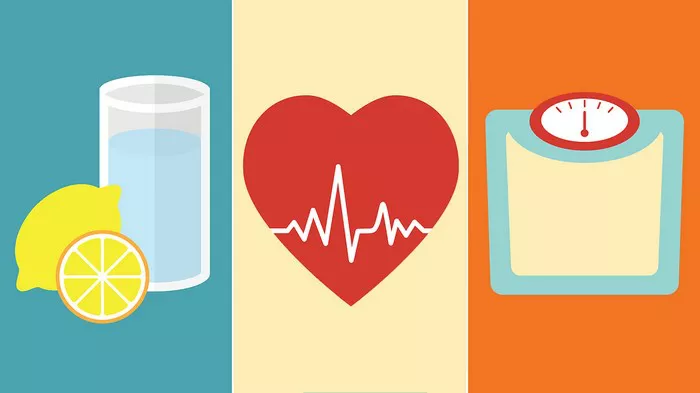Type 1 diabetes is a chronic condition characterized by the body’s inability to produce insulin, a hormone essential for regulating blood sugar levels. Unlike type 2 diabetes, which often develops later in life and is linked to lifestyle factors, type 1 diabetes typically manifests in childhood or early adulthood and is considered an autoimmune disorder. Managing type 1 diabetes requires a lifelong commitment to insulin therapy, blood sugar monitoring, and lifestyle adjustments. Given the demanding nature of this condition, many individuals and their families often wonder about the life expectancy of those living with type 1 diabetes.
Defining Life Expectancy
Life expectancy refers to the average number of years a person is expected to live based on statistical data and factors such as age, gender, genetics, and health status. It is crucial to recognize that life expectancy estimates are just that—estimates. They are not guarantees of how long an individual will live but rather probabilities based on population-level data.
Factors Influencing Life Expectancy in Type 1 Diabetes
Several factors influence the life expectancy of individuals with type 1 diabetes. Understanding these factors can provide insight into the challenges faced by those living with the condition and the strategies employed to optimize health outcomes.
Glycemic Control
Maintaining stable blood sugar levels is critical for individuals with type 1 diabetes. Chronic hyperglycemia (high blood sugar) can lead to complications such as cardiovascular disease, kidney disease, nerve damage, and vision problems. Conversely, severe hypoglycemia (low blood sugar) can result in seizures, unconsciousness, and even death.
Diabetes Complications
Long-term complications of type 1 diabetes can significantly impact life expectancy. These complications may include diabetic retinopathy (eye damage), diabetic neuropathy (nerve damage), diabetic nephropathy (kidney damage), and cardiovascular disease. Strict management of blood sugar levels, blood pressure, and cholesterol, along with regular medical screenings, can help prevent or delay the onset of these complications.
Lifestyle Factors
Healthy lifestyle choices, including a balanced diet, regular exercise, adequate sleep, stress management, and avoidance of tobacco and excessive alcohol consumption, play a crucial role in managing type 1 diabetes and promoting longevity. These lifestyle factors can help control blood sugar levels, reduce the risk of complications, and improve overall well-being.
Access to Healthcare
Access to quality healthcare, including regular visits to healthcare providers, diabetes education programs, affordable medication and supplies, and mental health support, is essential for individuals with type 1 diabetes. Adequate healthcare can facilitate early detection and management of complications, optimize treatment regimens, and improve health outcomes.
Socioeconomic Factors
Socioeconomic factors such as income, education, employment status, housing stability, and social support networks can impact the life expectancy of individuals with type 1 diabetes. Lower socioeconomic status is associated with reduced access to healthcare resources, increased stress levels, and higher rates of diabetes-related complications.
Research Findings
Numerous studies have examined the life expectancy of individuals with type 1 diabetes and identified trends and predictors of mortality. While findings may vary depending on the study population, methodology, and follow-up period, several key observations have emerged:
Improved Life Expectancy
Advancements in diabetes management, including insulin formulations, blood glucose monitoring devices, continuous glucose monitors (CGMs), insulin pumps, and diabetes education programs, have contributed to improved life expectancy for individuals with type 1 diabetes. Early diagnosis, optimal glycemic control, and timely intervention for complications have also played significant roles in enhancing outcomes.
Disparities in Life Expectancy
Disparities in life expectancy persist among individuals with type 1 diabetes, with certain demographic groups experiencing higher mortality rates. Factors such as race, ethnicity, socioeconomic status, geographic location, and healthcare access contribute to these disparities. Addressing these inequities requires targeted interventions aimed at improving healthcare delivery, reducing barriers to care, and addressing social determinants of health.
Impact of Complications
The presence of diabetes-related complications, particularly cardiovascular disease, significantly reduces life expectancy in individuals with type 1 diabetes. Strategies aimed at preventing and managing complications, such as aggressive blood pressure and cholesterol control, smoking cessation, and lifestyle modifications, are crucial for improving long-term outcomes.
Longitudinal Studies
Longitudinal studies tracking individuals with type 1 diabetes over several decades provide valuable insights into life expectancy trends and predictors of mortality. These studies highlight the importance of sustained glycemic control, early detection and treatment of complications, and adherence to evidence-based guidelines for optimizing longevity.
Conclusion
While living with type 1 diabetes presents numerous challenges, advances in medical care and self-management strategies have significantly improved life expectancy for affected individuals. However, disparities in life expectancy persist, highlighting the need for targeted interventions to address healthcare access, socioeconomic factors, and diabetes-related complications. By prioritizing glycemic control, preventing complications, adopting healthy lifestyle habits, and ensuring equitable access to healthcare, individuals with type 1 diabetes can enhance their quality of life and improve their chances of living longer, healthier lives. Ongoing research and public health efforts are essential for further advancing our understanding of type 1 diabetes and promoting optimal outcomes for those affected by this condition.



























